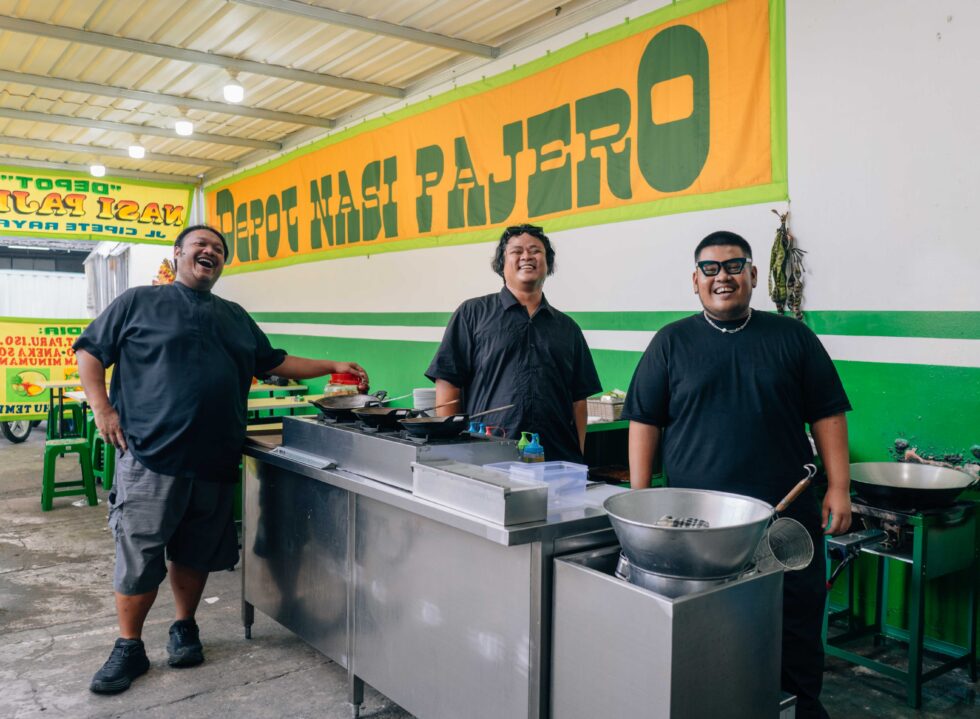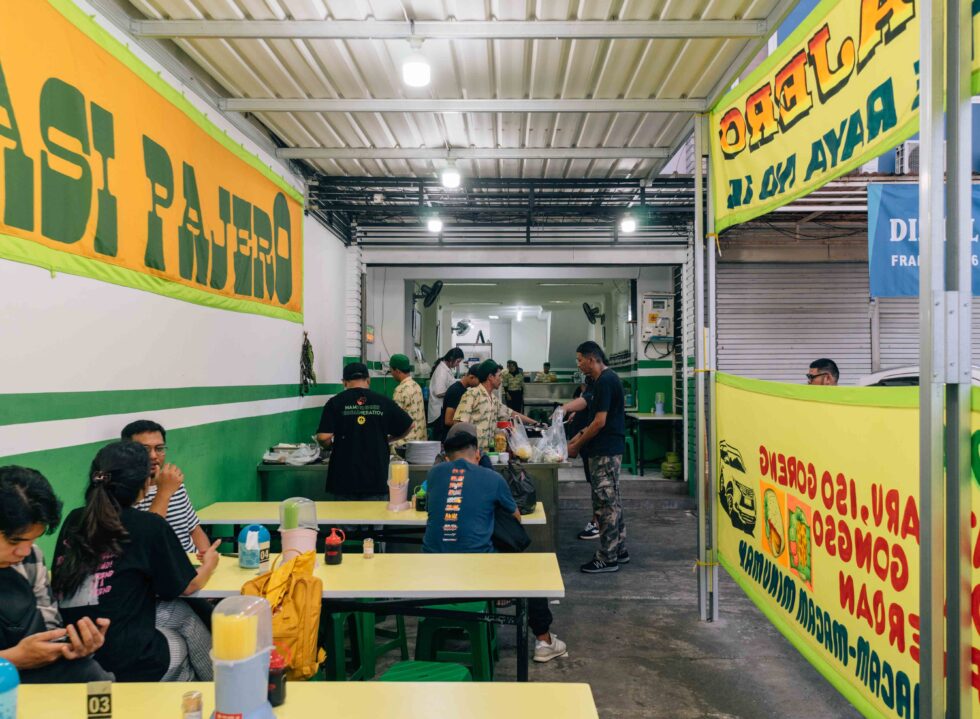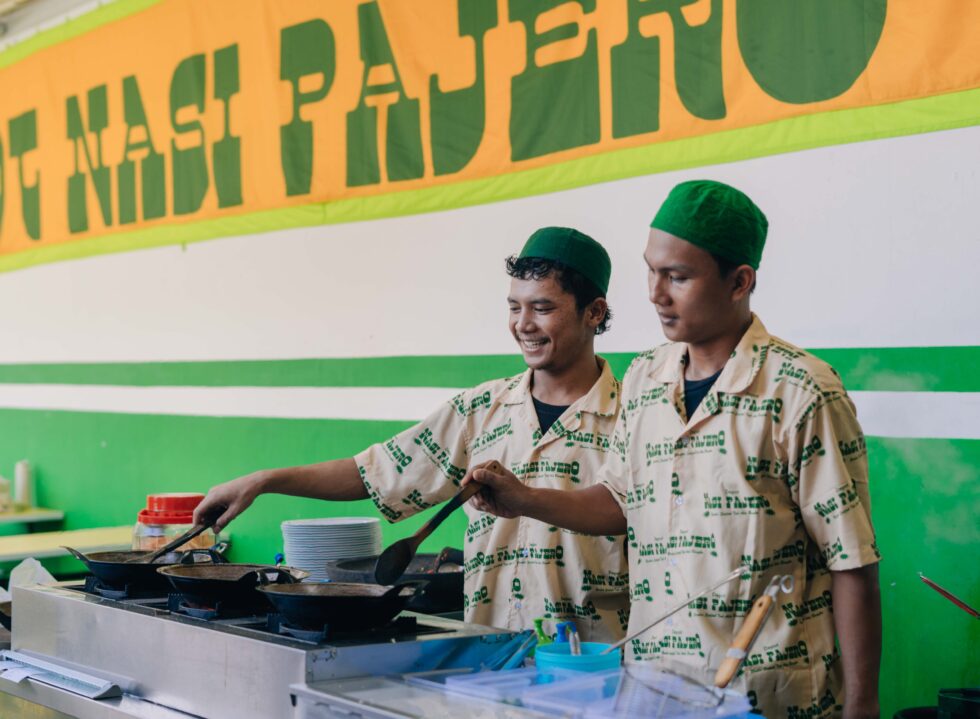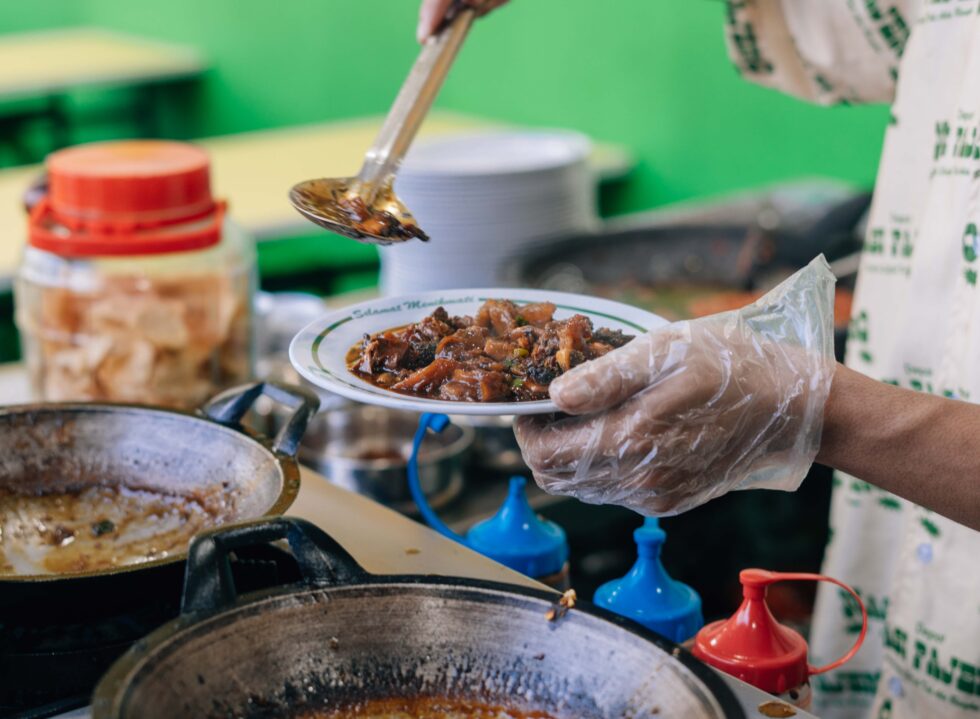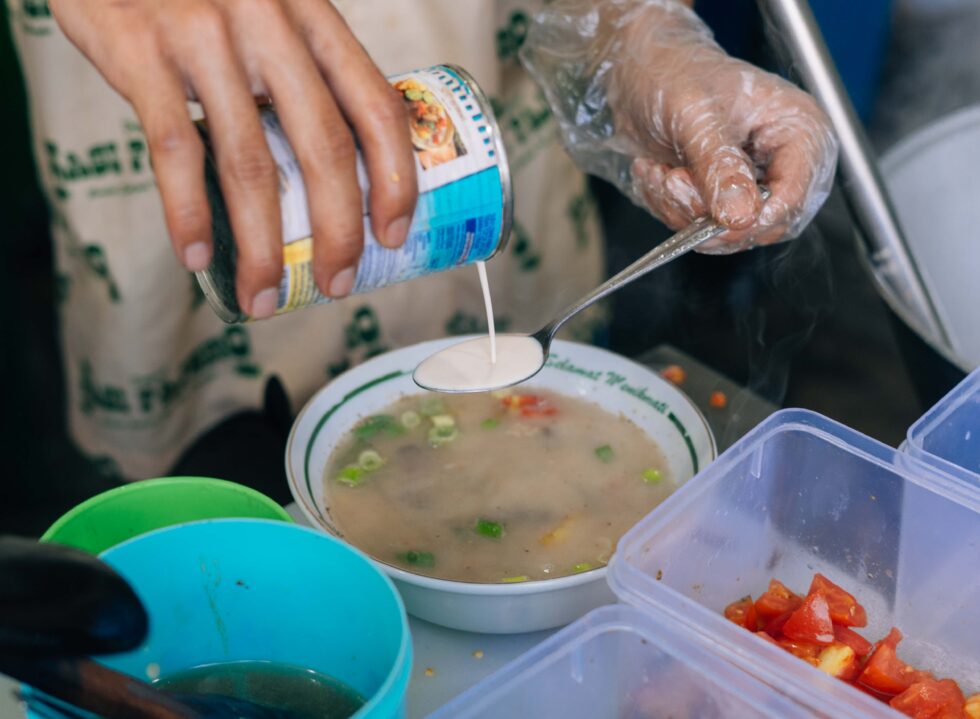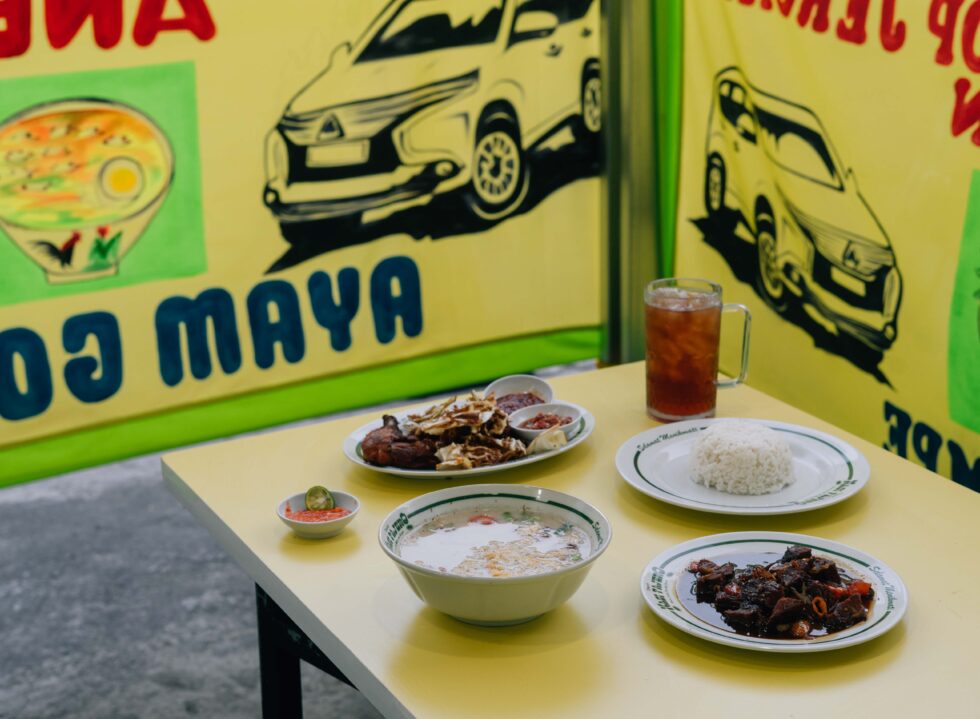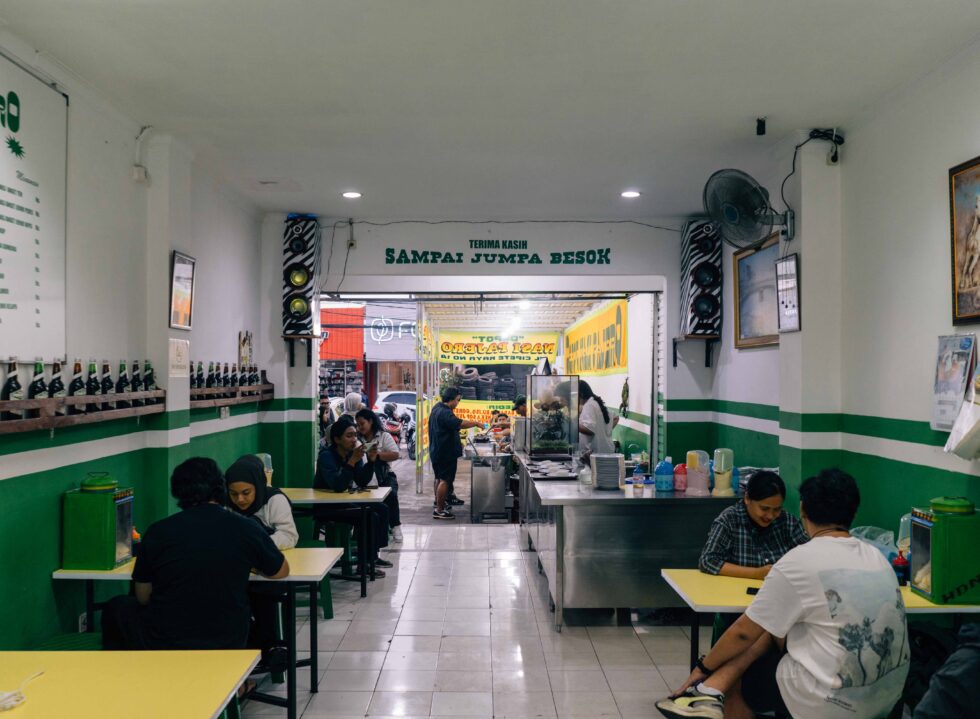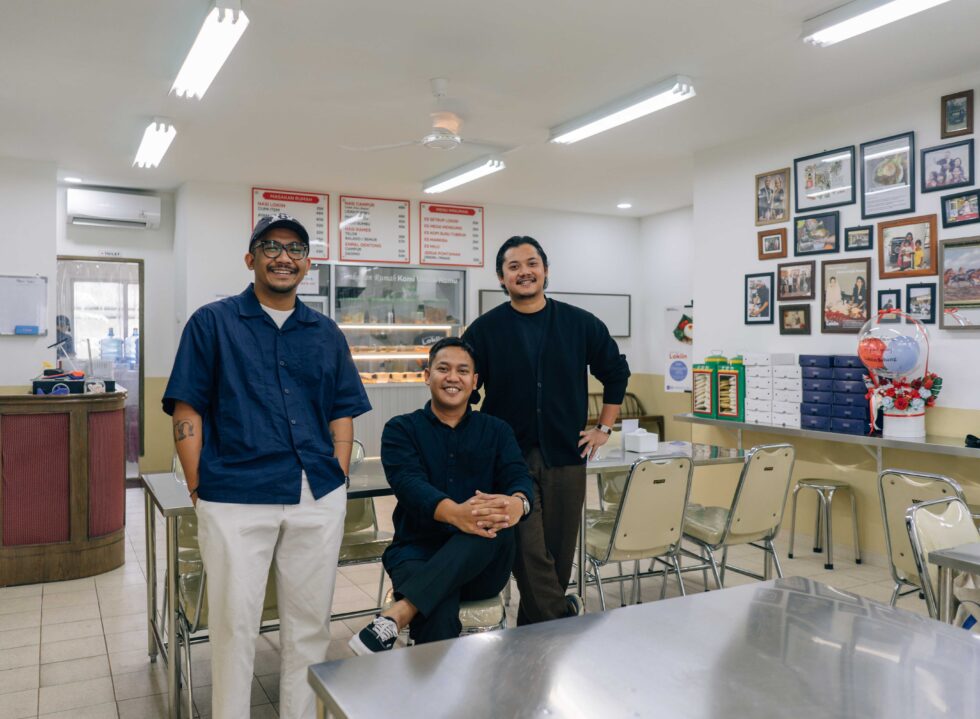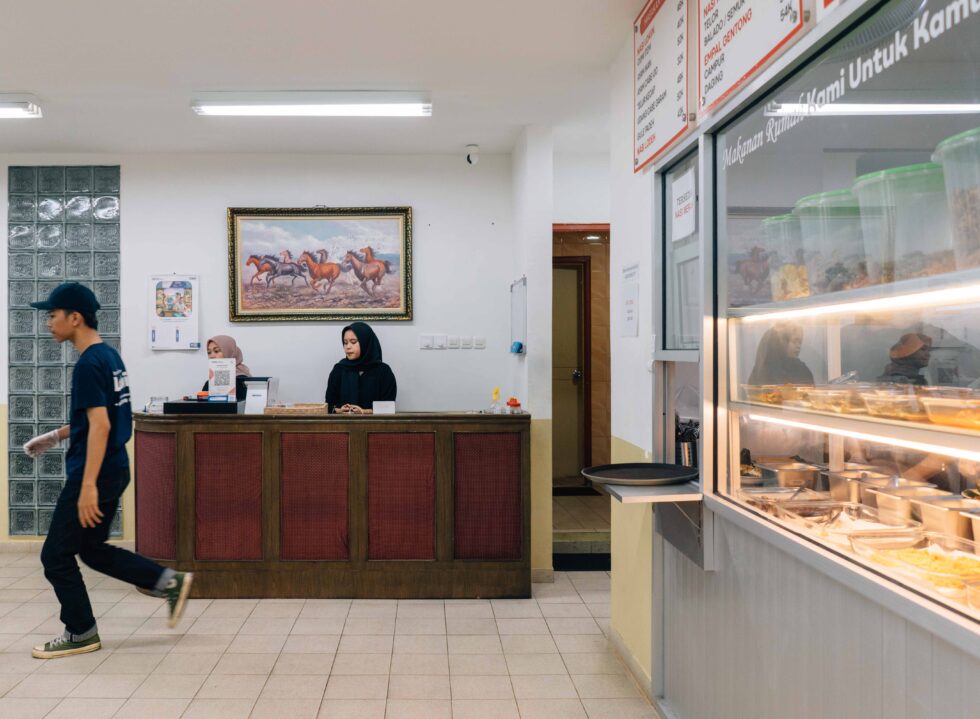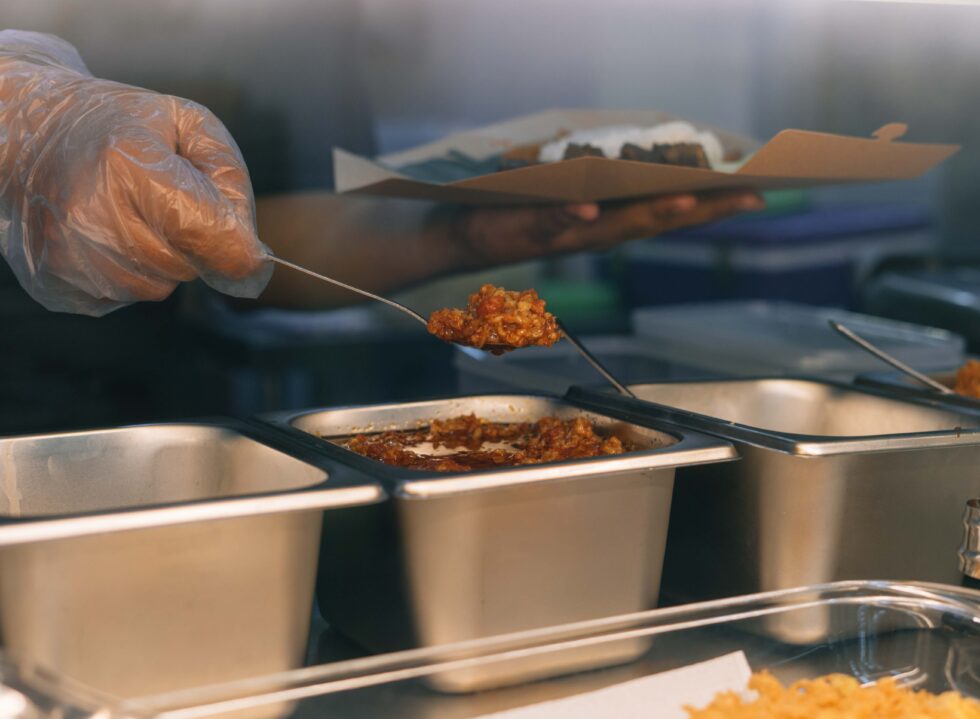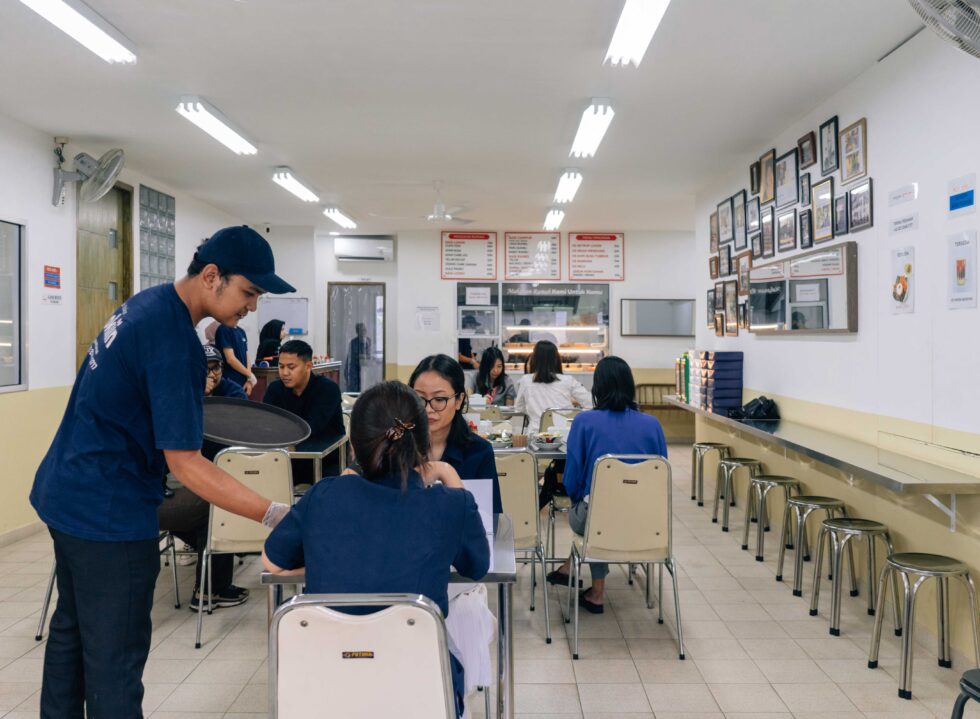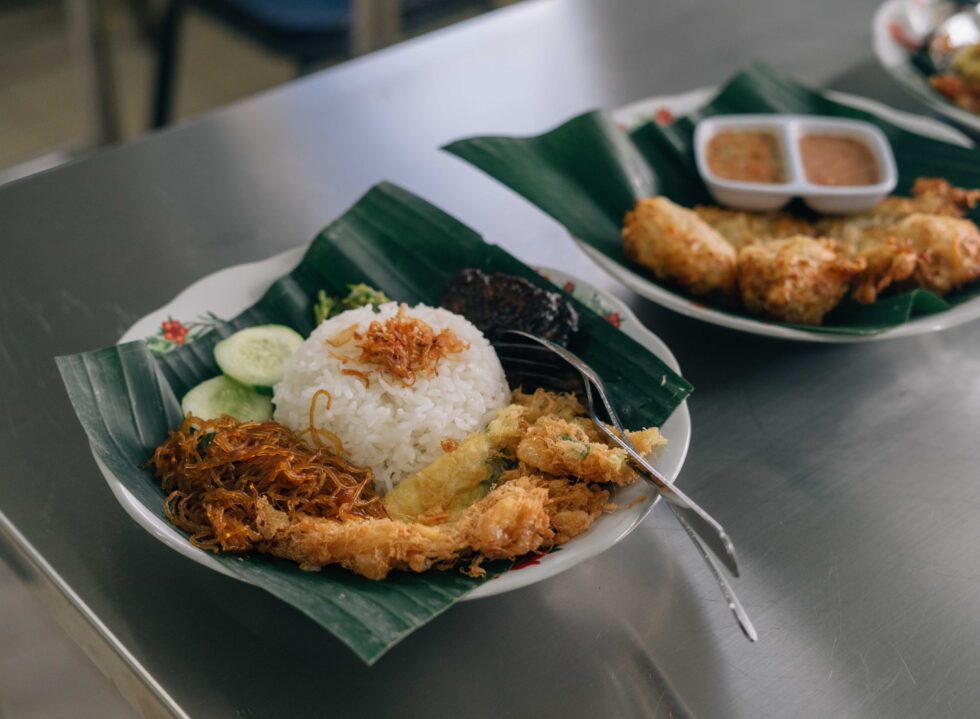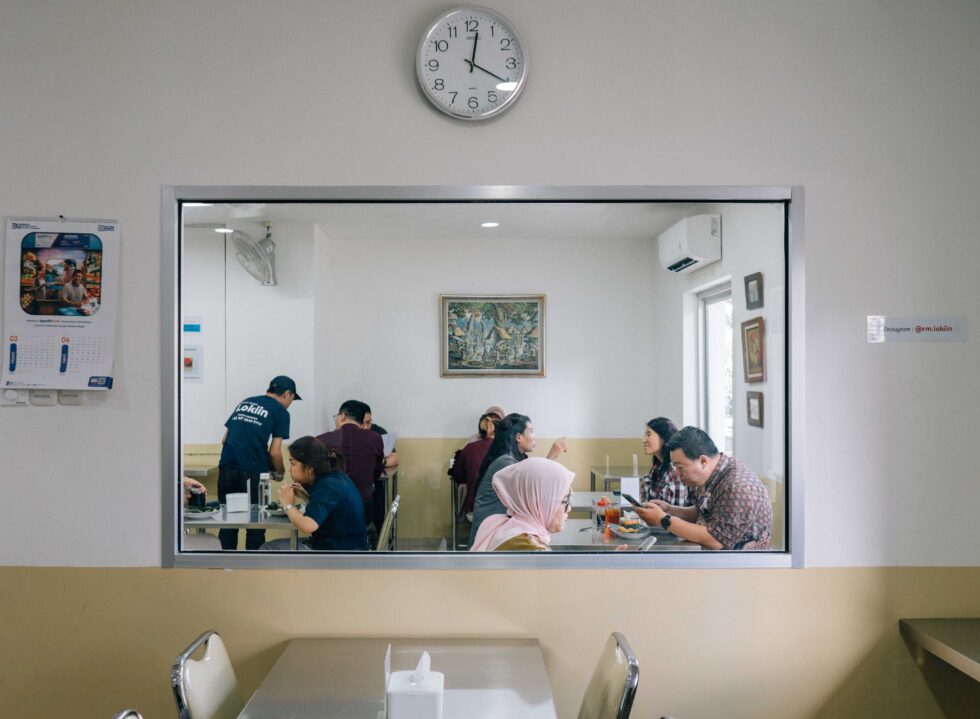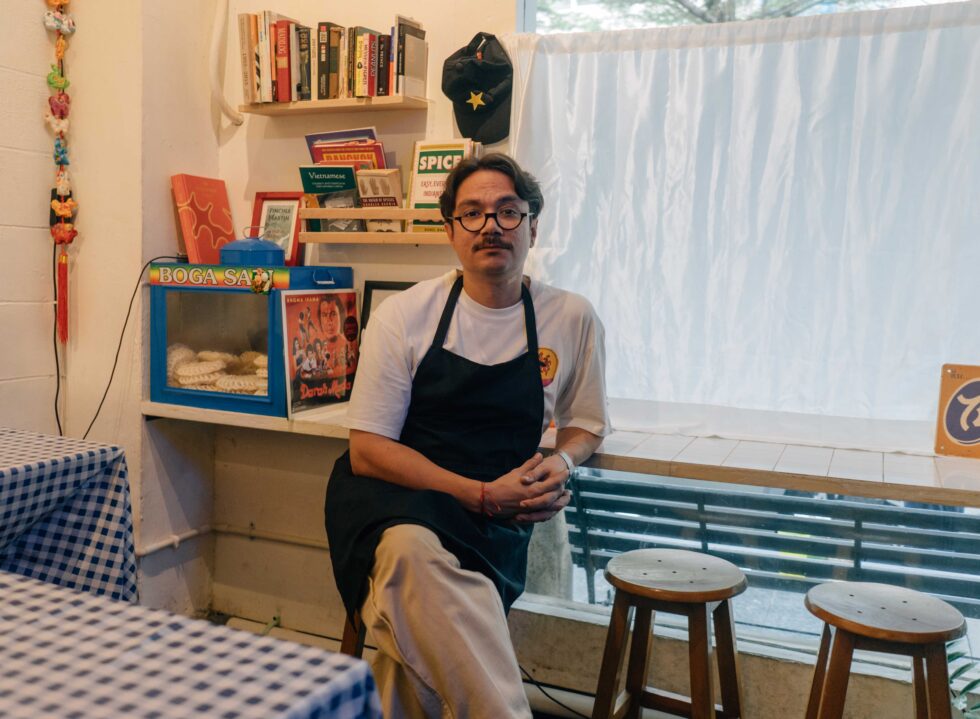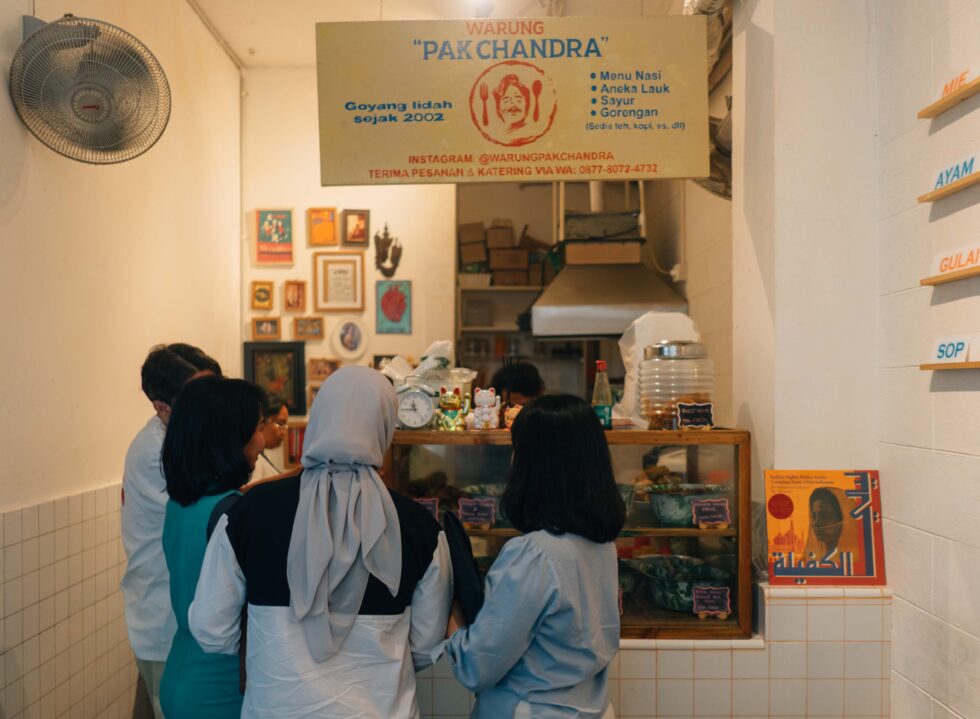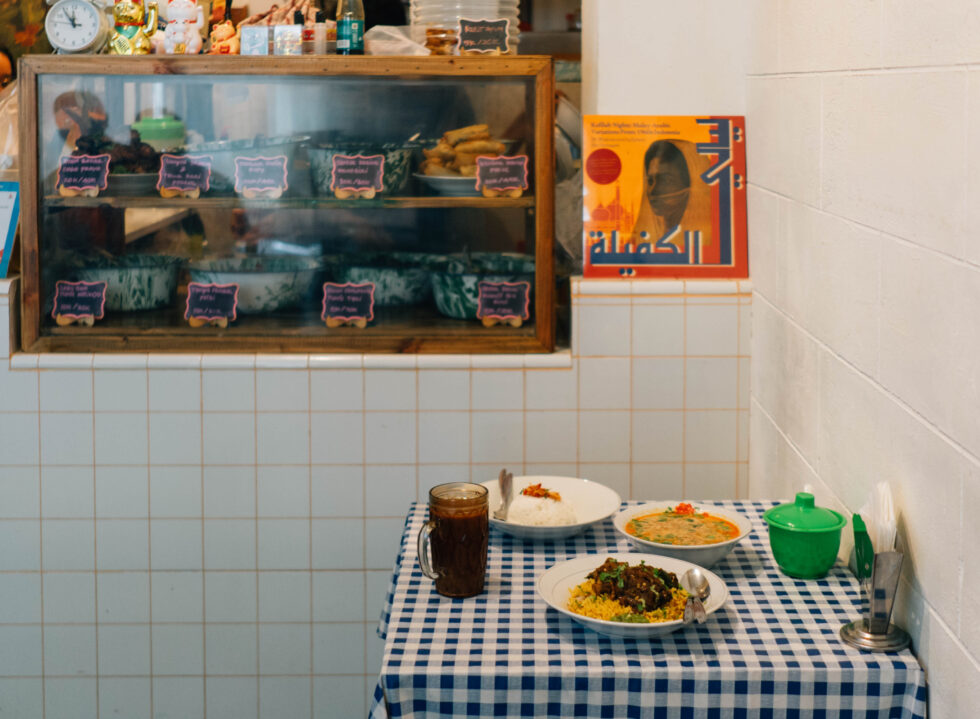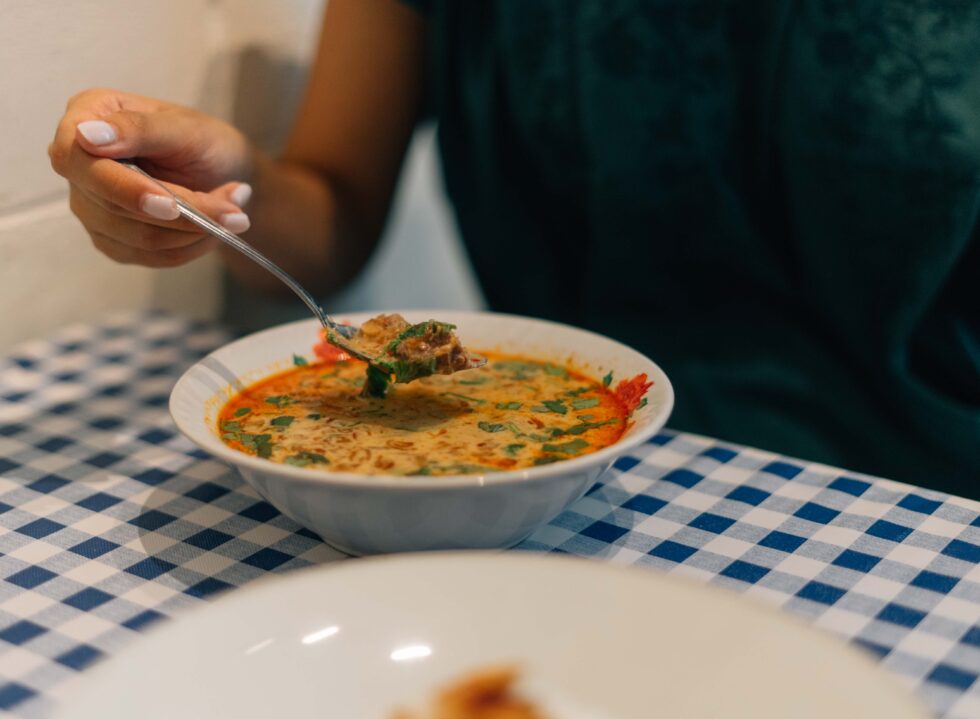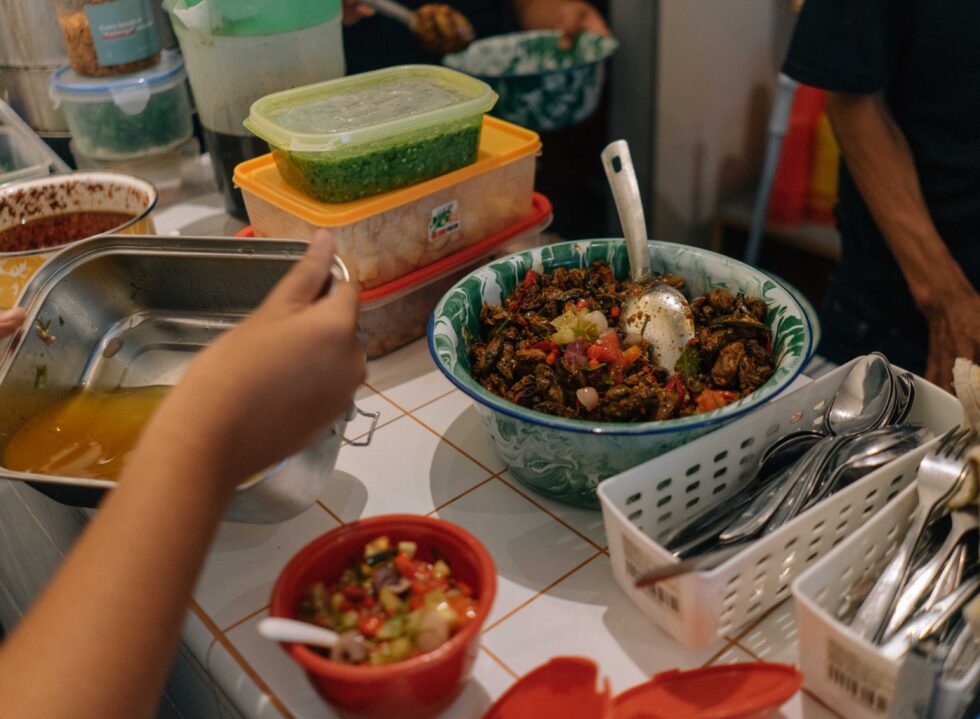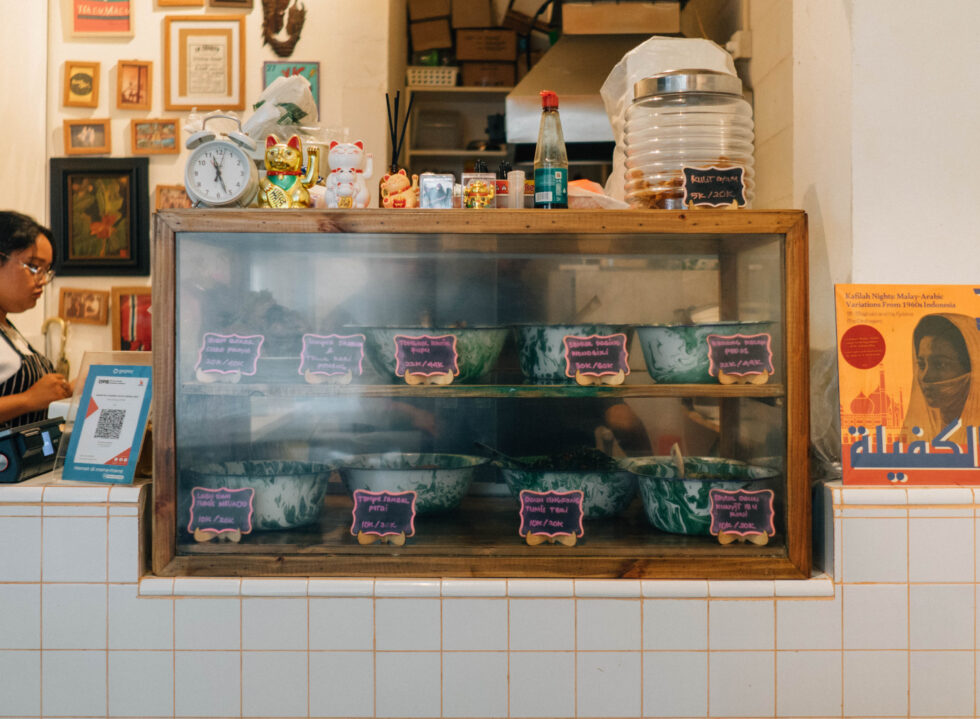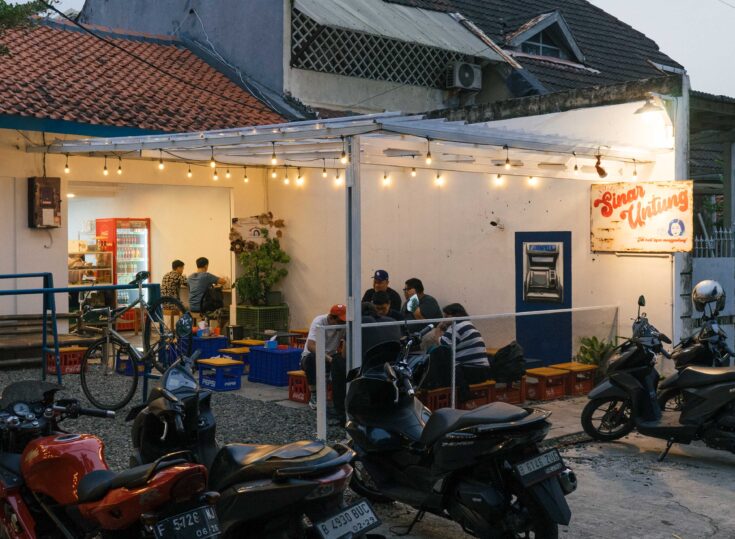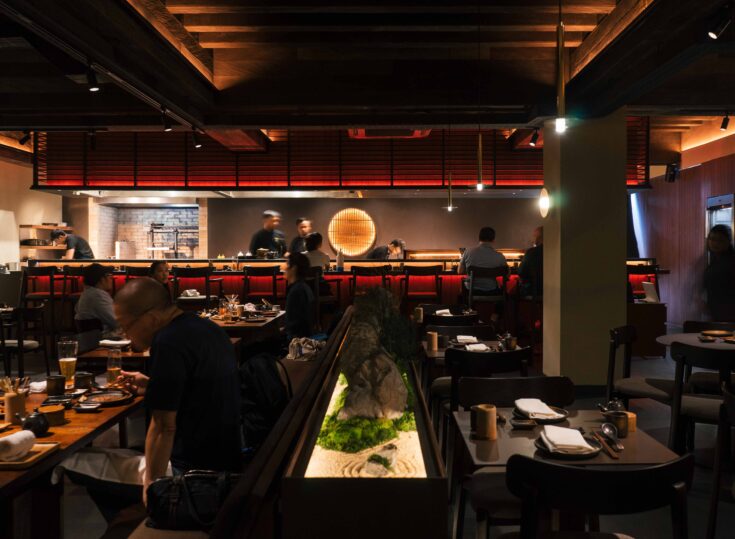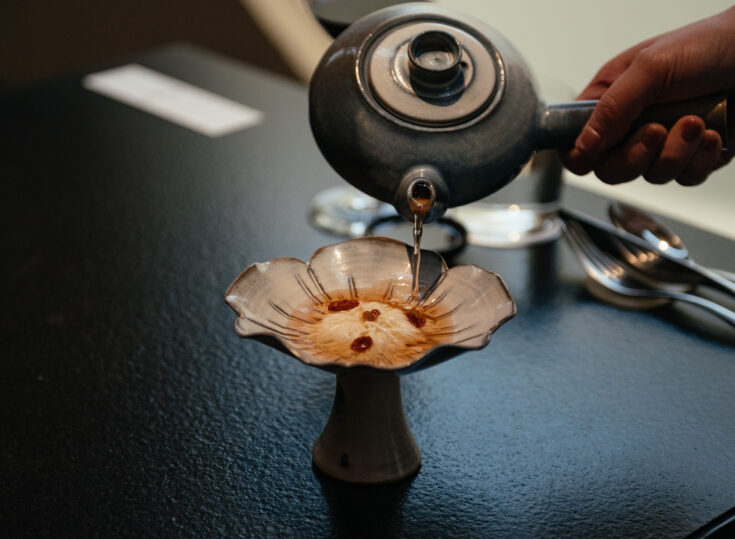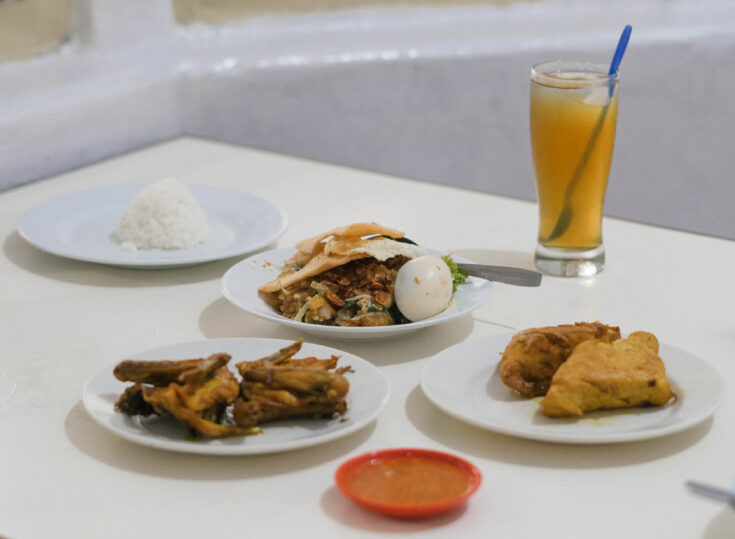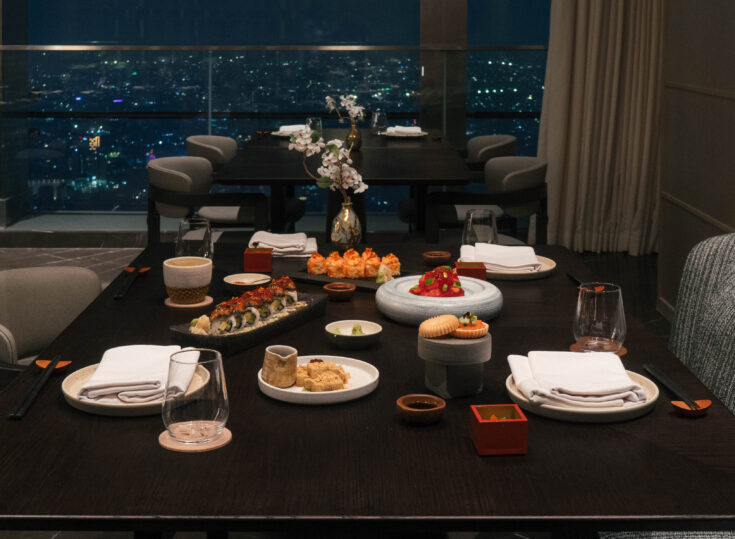What does the post-pandemic look like for Jakarta’s F&B scene? From the surge of bistros and natural wine bars to the rise of slow bar coffee shops and small artisanal bars crafting explorative drinks (martabak–infused gin, anyone?), the city’s culinary landscape thrived in all directions of trends and oddities. But within this progression also emerged a new generation of F&B entrepreneurs dancing with nostalgia, looking to memories to serve home-style Indonesian food set within an equally familiar and simple setting.
Rumah Makan Lokiin has been serving their customers a range of familiar Indonesian dishes made with recipes by Mbak Iin, co-founder Zakari Danubrata’s longtime household employee. “When we were still at school, we’ve said to each other ‘Let’s make a warung and we’ll serve food that we usually eat at Zakari’s,” recounted Dhika Iqra, one of the six co-founders of Rumah Makan Lokiin. “Now meeting as adults, we actually made it happen.”
Growing up playing at Zakari’s home after school, the six childhood friends would often fill their hunger with Mbak Iin’s cooking; embracing the memory-driven taste, coupled with Mbak Iin’s sincere approach to cooking, the six friends decided to bring her recipes of Nasi Campur, Empal Gentong beef soup and Nasi Lodeh to a wider audience. Starting as a pre-order home business, Rumah Makan Lokiin now has two outlets under its belt, one at Melawai, and the other at Sabang Street set with a bigger space and an obvious callback to the classic rumah makan style setting.
“Mbak Iin is already like family to us. She’s also our executive chef, so every dish is still QC-ed by her,” noted the 35-year-old Dhika. “Her food is made with so much love, and the way she expressed her affection for us and Zakari’s family, can be seen through her cooking. So we hope that feeling is also reflected across Lokiin.” Co-founder Chaka Ramadhan added, “Is it easier to sell food that people are already familiar with? Not really, especially when we’re in the company of many longtime established Indonesian eateries. We simply want to share this joy of home cooking with a lot of people.”
“Is it easier to sell food that people are already familiar with? Not really.” – Chaka Ramadhan, co-founder of Rumah Makan Lokiin
Over in Cipete, a blaring yellow-green eatery with billowing Lamongan-style hand-painted banners immediately draws the mind to the signature Jakarta vernaculars of streetside food tents. The storefront screaming ‘Depot Nasi Pajero’ may not be a clear reference to their signature offerings: jeroan or offals. But when elaborated, ‘Pajero’ stands crystal clear as pasukan jeroan or lovers of offals.
“I think it’s not just us, but diners are also becoming tired of places offering more or less the same concept,” opined Dio Reza Augusta, co-founder and owner of food media, Tworubber. “So we go back to making food that is close to us. Ultimately, we want to create a place where people can come in and eat every day—whether you’re meeting someone or eating solo, going here should feel effortless.”
Their choice of offerings may tilt some heads; offals, often called the inedible parts of an animal—which include tripes, intestines and the like—are not exactly the number one pick of everyday comfort food. Even Dio, and the other two founders Respati Tamio and Teuku ‘Wiro’ Andre Azis, admitted to seldom eating offals. But they made the idea appealing by preparing the meat in three ways: fried, cooked up into a soup, or braised in sweet soy sauce and broth stew known as gongso. For the latter, they even went as far as sourcing a Semarang-based ketchup, Mirama, whose taste is lighter in consistency with just the right amount of sweet.
“I think it’s not only us, but diners are also growing bored of places offering more or less the same concept.” – Dio Reza Augusta, co-founder of Depot Nasi Pajero
Since opening, the buzz around Depot Nasi Pajero has gone beyond the founders’ expectations. The fear that young crowds may not favour the peculiar meats dissipated into thin air when they quickly became one of Depot Nasi Pajero’s crowd favourites. “Initially, our intended market is the husbands who have to watch their diet and sneak off to indulge a little,” joked Wiro. “Maybe because of the neighbourhood, many young crowds have come to try and they brought their family over the next day to enjoy the dishes together—that’s exactly how we want our presence to grow.”
On the other spectrum of offering simple, comfort food is the dishes cooked by Chandra Drews at Warung Pak Chandra. Set amidst the shophouses of Wijaya Centre, the tiny joint always sees a constant stream of diners before the midday strikes, where they satisfy their cravings with Chandra’s daily rotation of home-cooked selections like Ayam Bakar Petchaburi and Daun Singkong Tumis Teri, or one of Chandra’s mainstays of Thai-Indo hybrid dishes.
Though not exactly Indonesian, Chandra’s offerings serve a combination of styles, flavours and ingredients traversing Southeast Asian flavours with its heavy use of herbs and spices, like coriander roots in the punchy bowl of Gulai Daging Chiangmai, or the sprinkle of turmeric and lemongrass in the fragrant Nasi Goreng Tuk Tuk. To put simply, it’s about making food that Chandra likes, in hopes that people will like it too.
Chandra noted that the influence of food bloggers and YouTubers play a role in shaping what people eat. He credited food journalists like Anthony Bourdain, who champions simple, honest taste, as a big source of inspiration for cooks and business owners like Chandra to create something with a similar spirit. “It’s human nature, you always go back to your comfort zone—and home cooking is the ultimate comfort zone.”
“It’s human nature, you always go back to your comfort zone—and home cooking is the ultimate comfort zone.” – Chandra Drews, founder of Warung Pak Chandra
In comparison to longtime eateries that have witnessed the evolution of the city itself, Chandra makes a point of their characteristic trait that he wishes to draw from as well. “Generally speaking, the older generation eateries have that hands-on approach as seen from the way the owners are in the store every day. Maybe, what’s missing today is that lack of soul. That’s why I try to be here every day, talking to customers and asking what they like and don’t like, and be present with how the business is growing.”
Rumah Makan Sepakat, who has been in the business for over 50 years, is a generational eatery famed for its servings of Minangkabau dishes. Continuing the trade is third-generation Yofie Akbar, who commits to maintaining the same recipes passed down by his parents and still preparing them fresh every day at three in the morning.
“It warms my heart seeing many creative and young entrepreneurs tapping into this idea of homey, simple food—it shows that they have a deep care towards Indonesian culinary and want to present them the best way they know how,” expressed the 52-year-old Yofie.
For the father-of-two, the formula to keeping a long-lasting business is quite textbook, but one that he has learned through decades is to identify a certain selling point and stick to it—as exemplified by Rumah Makan Sepakat’s signature Gulai Gajeboh, a tender brisket fat cooked in asam padeh sauce (a sour tamarind-and-chilli fish curry), which until today remains the eatery’s best-selling dish.
In the end, it’s about the genuine enjoyment offered by the food, the environment it inhabits, and how it can persist for a long time. Likewise, for this breed of eateries who wish to pass on their business through generations, Yofie’s wish for Rumah Makan Sepakat is endearingly simple.”The best praise any place can receive is to be remembered fondly, with people always wanting to come back. That’s when you know you’ve truly made it.”
